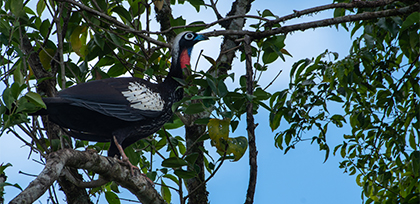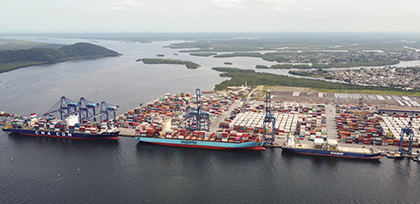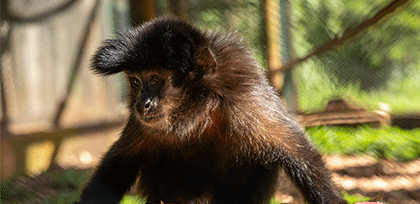ESG HIGHLIGHTS
Klabin in numbers
23 plants,
22
in Brazil and one in Argentina.
more than
25,000
direct and indirect employees.
2.6
million tons of annual paper production capacity, which will reach 3.1 million when MP28 comes online, scheduled for the second quarter of 2023.
1.6
million tons of market pulp production capacity per year.
719,000
hectares of total area, 42% of which are conservation areas and 356,000 hectares of productive areas*
90
trees planted per minute.
*The production areas are made up of areas planted with pine or eucalyptus forests and also those that are being harvested, transported and planted.
Financial highlights in 2022
-
BRL 7.8 billion in Adjusted EBITDA, excluding non-recurring effects, up 13% from 2021.
-
19.2% ROIC, signaling consistent performance across multiple quarters and assertive capital allocation.
-
Net revenue reached BRL 20.033 billion, a 22% increase from 2021, with growth across business segments: pulp, paper, and packaging.
-
30% of its debts linked to sustainability performance, integrating its financial strategy with the 2030 Agenda and the Company's growth.
Recognition
The long-standing commitment to a management approach that focuses on sustainable development, good governance practices, and transparency has earned Klabin a place on international lists and rankings that set it apart in the market.
For the
3rd
consecutive year entered on the Dow Jones Sustainability Index.
For the
10th
consecutive year, Klabin is part of the B3’s Corporate Sustainability Index (ISE) portfolio.
For the
3rd
year in a row, Klabin has been included in the CDP Brazil Climate Resilience Index (ICDPR70) with an A rating.
Unique in Latin America in the top
1%
of The Sustainability Yearbook, by S&P Global.
Klabin came out on top in the
Golden Tombstone Award, in the “Debt” category, with the Sustainability-Linked Bond (SLB).
Recognized with
Expressão de Ecologia Award in the "Water Conservation" category.
Climate changes and emissions management
As a TCFD Supporter, Klabin publicly backs the recommendations of the Financial Stability Board (FSB) on the management of climate risks and opportunities and, in 2022, the Company began to meet 100% of the initiative's recommendations.
Investments in low-carbon technologies have contributed to a 68% reduction in specific CO2 equivalent emissions per ton of product generated since 2003.
In 2022, the Company recorded a 1.3% reduction in scope 1 emissions compared to 2021, mainly due to the decrease in fuel oil consumption in the lime kilns at the Puma (PR) and Correia Pinto (SC) units, with the start-up of the biomass gasification plant at the Puma II Project and the use of bio-oil in the lime kilns of Correia Pinto.
Use of energy
Use of water
All of Klabin’s own forestry operation in Paraná and Santa Catarina use the hydrosolidarity management, a strategy based on achieving a balance between forest production and water production. Thus, it is able to integrate the various needs of the input for production, neighboring communities, and ecological processes. The Company is currently working to ensure that, by 2024, its forests located in São Paulo will also operate under this strategy.
Waste management
Waste management is a priority item on Klabin's sustainability agenda. The Company's 2030 target is to zero the disposal of industrial waste to landfills. By leveraging intelligent use of natural resources, Klabin employs technology to enhance circularity in processes, thereby creating value across the entire supply chain.
985
was the rate of waste reuse achieved by the Puma Unit in 2022, a result driven by the performance of the Waste Processing Center, which had been in operation since the start.
998
was the rate of waste reuse achieved by the Puma Unit in 2022, a result driven by the performance of the Waste Processing Center, which had been in operation since the start.
Biodiversity monitoring
-
855 fauna species identified. Of this total, 708 have conservation status recognized by the IUCN.
-
Of these, 29 are endangered species.
-
1,968 plant species identified. Of this total, 526 have conservation status recognized by the IUCN.
-
Of these, 39 are endangered species.
Commitment to local development
Klabin has an economic, social, and environmental agenda with the communities where it operates, which includes projects for education and job training, family farming, regional solid waste management, and a program to support public management planning.
Aceitação
Average approval rating of 83.6% in the municipalities where Klabin operates. The 2030 Agenda (KSDG) target is 80% in four out of the six territories surveyed.
Educação e capacitação
By 2022, 106 students have graduated from the Ortigueira Forestry and Agricultural Technical School, Klabin's project in partnership with the State Government of Paraná. Among the graduates, 41.5% have already been hired by Klabin.
People management
At the end of 2022, Klabin's workforce was made up of 18,482 professionals. The majority of employees are between the ages of 30 and 50, followed by those under 30.
Diversity
Klabin has been steadily increasing the representation of women in its workforce since 2019, when 15% of the total were female professionals. In 2022, women accounted for 24% of the total.
Climate survey
With 87% favorability in the Climate Survey conducted in 2022, Klabin was among the top 25% of companies in the Korn Ferry consulting firm's ranking.
Corporate Governance
Klabin is listed on B3's Level 2 of Corporate Governance, is signatory to the Abrasca Code of Self-Regulation and Good Practices for Listed Companies since 2011, and is on the world list of the Dow Jones Sustainability Index for the third consecutive year.
-
Units: a share package consisting of 1 common share and 4 preferred shares provides greater liquidity.
-
Equal economic rights: Tag Along of 100% of the share amount paid to the controlling shareholder, in the case of sale of the company, and equal dividends for common and preferred shares.











